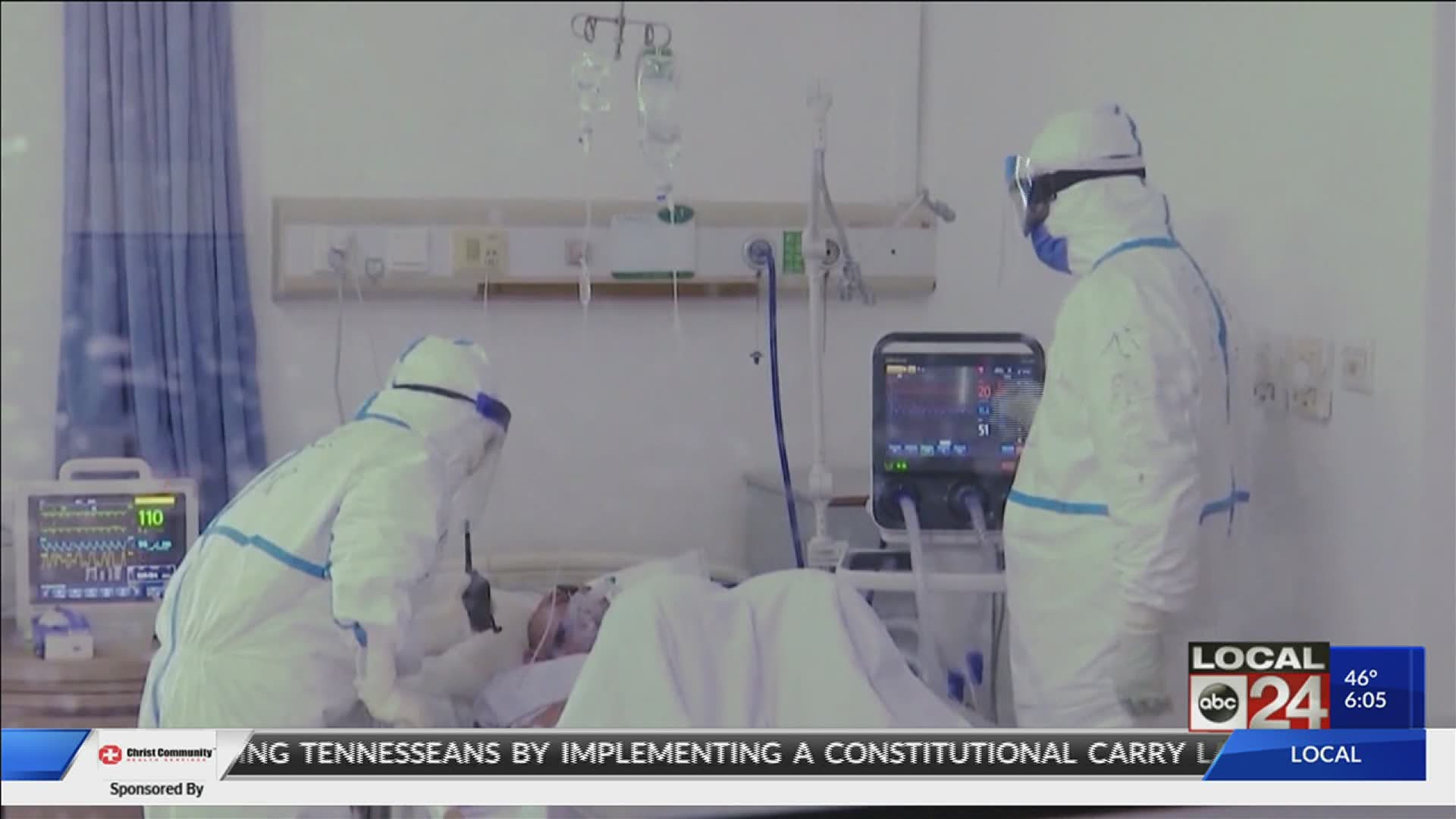MEMPHIS, Tenn. —
The global response to the coronavirus continues as the number of cases increases.
In the United States, the risk remains low. Local 24 News spoke to health experts to find out just how prepared people should be and what steps people should take.
Day by day and hour after hour, Saint Francis Hospital's Dr. Dale Criner says information on coronavirus is changing.
"We're literally learning as we go, specifically about this virus," said Dr. Criner.
That is what makes this strand of the virus different from what we've seen in the past.
There are questions. Can I get the coronavirus if I get an item shipped from China or other areas with an outbreak?
"The CDC is saying that a package that has been transported ambient temperature overseas, the risk is extremely low, but they can't definitively say it's none. We don't have the evidence to say exactly how long it lives outside the body," said Dr. Criner.
RELATED: VERIFY: Viral 'coronavirus vs SARS/Ebola/swine flu' graph is accurate, but leaves out context
RELATED: Should men shave their beards? When are you contagious? Your coronavirus questions answered
Who is more impacted by the virus?
"It's not specific to a particular gender. It's not specific to a particular race. People can travel from here and there and just because you're from Asian descent, does not necessarily mean you are more prone to developing this disease than anyone else. It's important that we don't racially profile," said Dr. Criner.
We hear a lot about social distancing. Should I stock up on supplies and avoid crowded places?
"We don't need to go out and deplete all the stock in the supermarket from all the things we think we need in our house. It's just the time to kind of be aware and be educated and to be vigilant, but not necessarily to panic," said Dr. Criner.
While the risk is low in the United States, hospitals in the Mid-South are still preparing in case there is a local outbreak. Hospitals in our area have adjusted their screening questions when patients arrive. They are asking if patients traveled to areas impacted by the virus or had any exposure to someone else showing symptoms.
Baptist has more than 100 negative pressure rooms in case there are patients with the virus. Hospitals are also working with the Centers for Disease Control as far as staying up-to-date, travel alerts, and plans in case of a local outbreak.
"If we do have someone that comes in presenting symptoms that are consistent with an infection such as what we're talking about, COVID-19. They've been to a high risk area, we follow the CDC guidance and guidelines on what to do on steps after that, such as the current amount of quarantine, protection, and what to do with personal protective equipment," said Dr. Criner.
The coronavirus can spread similarly as the flu and other viruses. Washing your hands for 20 to 30 seconds, coughing in your elbow, and avoiding others when experiencing symptoms are helpful preventative measures. Doctors also advise using disinfectants with high alcohol contents such as 60% and up.

